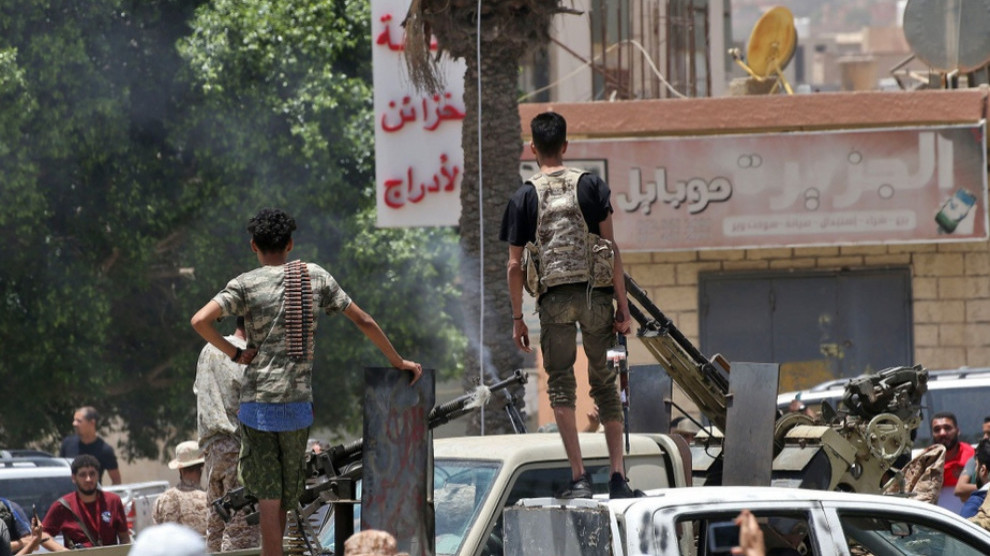EU calls on conflict parties in Libya to withdraw foreign forces
EU members urged all members of conflict to end operations and engage in peace talks, while Haftar forces retreated due to the Libyan Army's advance toward Sirte.
EU members urged all members of conflict to end operations and engage in peace talks, while Haftar forces retreated due to the Libyan Army's advance toward Sirte.

The European Union called on all parties involved in the Libyan conflict to end military operations and engage in peace talks in a joint statement signed Tuesday by EU foreign policy chief Josep Borrell and the foreign ministers of France, Germany and Italy.
The document addresses international actors as well, urging the "withdrawal of all foreign forces, mercenaries and military equipment supplied."
The European ministers also insisted on the need to "engage constructively in the five-plus-five negotiations" in reference to a joint military commission that helped broker a cease-fire announced in Cairo earlier this month.
A political initiative was agreed to on Saturday between Egypt's Abdel Fattah el-Sissi, the speaker of the east Libya-based parliament Aquila Saleh and putschist Gen. Khalifa Haftar.
The Cairo Declaration calls for a cease-fire in Libya as of Monday and proposes a new assembly to form the House of Representatives and Presidential Council.
Neither the members of Libya's internationally recognized Government of National Accord (GNA) nor their international allies were present at the conference in Cairo.
However, the EU statement describes the Cairo Declaration as "constructive commitments to halt the fighting, resume dialogue and reach a cease-fire within" the Berlin process."
Last year, several high-level meetings were held in the German capital to put an end to the Libyan conflict, with the participation of France, Italy, Germany and the United Kingdom.
The negotiations are known as the Berlin peace process.
According to the European Union, this U.N.-backed negotiation procedure is the only acceptable way forward because it is based on peaceful and multilateral talks.
The joint statement followed increased diplomatic efforts by Germany to push for a political solution to the Libya crisis.
Chancellor Angela Merkel earlier on Tuesday expressed her concern in a telephone call with Russian President Vladimir Putin over the recent escalation of fighting in Libya.
On Monday, Merkel also discussed the situation in conflict-wracked Libya with Sissi. Merkel told Sissi that U.N.-backed negotiations must remain the key aim of a peace process in Libya.
Following the ouster of late ruler Moammar Gadhafi in 2011, Libya's new government was founded in 2015 under a political deal led by the United Nations.
The government and the western parts of the country have been under attack by Haftar's forces since April 2019. Haftar is supported by Egypt and the United Arab Emirates as well as Russia.
In March, the Libyan government launched Operation Peace Storm to counter attacks on the capital and recently regained strategic locations, including al-Watiya air base and the strategic city of Tarhuna.
The Libyan Army has made significant military gains against Haftar's militias in recent days, capturing all the cities west of Libya down to the borders with Tunisia.
On Saturday, the army launched another military operation to liberate cities of eastern and central Libya from Haftar's forces, one day after capturing Tarhuna – the last stronghold of Haftar in western Libya.
As Turkish military support helped drive Haftar forces back from Tripoli this month, Russia was said to be reinforcing the forces with warplanes, raising the stakes in a stalemated civil war that has partitioned the African country.
Turkish President Recep Tayyip Erdoğan on Tuesday also reiterated his country's support for the Libyan government in its fight against Haftar.